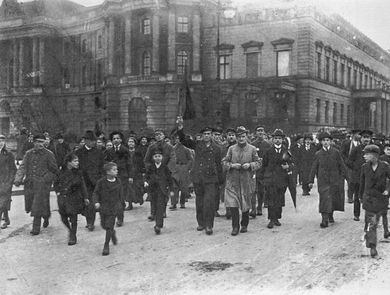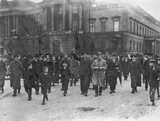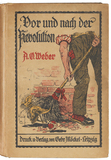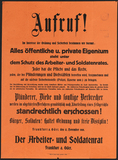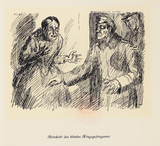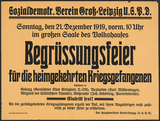End of the war and the November Revolution
The German memory knows neither beheaded kings nor killed Gauleiter, no street battles, no storming of the Bastille nor victory in a constitutional conflict. It preserves, with a sense of embarrassment, the memory of a half-hearted uprising and self-tortured and fickle resistance, everything ending in misery and bitterness.
Joachim Fest, "Es gibt hier nichts zu schießen...!" ("Nothing to shoot here"), 1968
Two million fallen soldiers, roughly one million civilian casualties and the surrender of more than one seventh of the national territory were the outcome of the lost First World War for the German Reich. Even the abdication of the aristocratic leaders was not enough to prevent the rise of parliamentarisation, which was quickly resolved in October 1918. The immediate trigger of the nationwide unrest and the formation of workers 'and soldiers' councils was the Kiel mutiny on 3 November. The transition from monarchical to democratic government began with the proclamation of the Republic on 9 November and ended formally with the adoption of the Weimar Constitution on 11 August 1919.
The Socialist ideas of this period of upheaval were not implemented. This was due mainly to the opposition of the SPD leadership which feared a civil war and pushed for reform instead of revolution. Thus, the uprisings which took place in the first half of 1919 were suppressed with the help of right-wing free corps, and the old elites were by no means stripped of all their power. Measured against their aims and possibilities, quite a few observers of the political events regarded the November Revolution as unfinished and as a failure. The lasting democratisation of state and society was not achieved.
Further information:
Andreas Wirsching: Die paradoxe Revolution 1918/19, in: Bundeszentrale für politische Bildung, 18.08.2017
Dieter Langewiesche: 1848 und 1918 - zwei deutsche Revolutionen, in: Friedrich-Ebert-Stiftung, 18.08.2017

